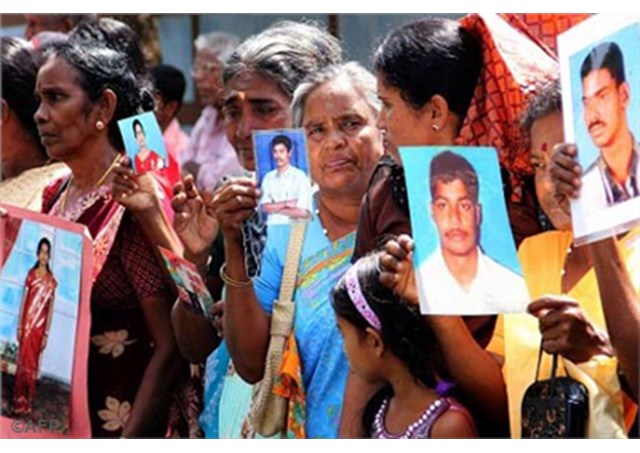
UN presses Sri Lanka on war crimes investigations, reforms

Sri Lanka must make more progress towards meeting commitments to establishing a credible investigation into alleged war crimes during the country's civil war and enacting reforms, the United Nations Human Rights Council (UNHRC) said on Thursday. The Geneva-based body handed Sri Lanka a two-year extension to implement fully the commitments that were made under a 2015 resolution after the United Nations top human rights official, Zeid Ra'ad al-Hussein, expressed concern at the "slow progress" of reforms in Sri Lanka.
The UN and rights groups have accused the Sri Lankan military of killing thousands of civilians, mostly Tamils, during the final weeks of the war and have pressed for justice for the families of those who disappeared. The United Nations launched a probe in 2014 into war crimes allegedly committed by both state forces and the Liberation Tigers of Tamil Eelam (LTTE) rebels. The government of then-leader Mahinda Rajapaksa resisted the probe and denied UN officials entry to the island nation.
Many council members welcomed Sri Lanka's engagement, but called on President Maithripala Sirisena's government to present a clear plan aimed at meeting reconciliation, reform and justice commitments.
In the eight years that have passed since the war ended, the government has failed to prosecute alleged war crimes such as torture, unlawful killings and enforced disappearances. Families whose loved ones disappeared during the conflict have urged the United Nations to pressure the Sri Lankan government to speed up the war crimes probe. More than 100,000 are believed estimated to have died and some 65,000 went missing during the 26-year conflict.
Sri Lanka's deputy foreign affairs minister, Harsha De Silva, told the UN rights body on Thursday that the government was striving to establish the rule of law and end impunity under "Sri-Lankan government-led processes". However, John Fisher, Geneva director of Human Rights Watch, said the president's opposition to the involvement of foreign judges, which had been agreed in the 2015 resolution, raised questions over the government's commitment to justice and undermined confidence in the government's efforts. (Source: Reuters)
| All the contents on this site are copyrighted ©. |


